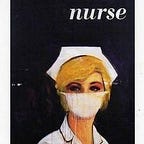Tweet Round-Up-Wednesday 19th May 2021
Today we’re looking at some alternative business structures, some sports, and speaking “casually” like…
What kind of business structure does your language school rely on?
That’s not something I’ve ever really considered working as an English teacher. But as an economic progressive, perhaps it’s something I’ve neglected to think about.
During these hard Covid19 times, where some language schools have been “eating up” the smaller schools, teachers have been suffering. Most employees don’t benefit from their employers cynical business motives.
Are co-ops an alternative way of running the show? Perhaps one of them. Listening to Ana Puusa talk about co-ops with such ardour and clarity, was interesting, and would make a good basis for an advanced lesson — aside from the fact that it speaks to our general economic malaise. You can find the video here. The video is a simplification granted but gives students a good outline of the general idea of co-operatives.
A few years back I taught English to seven to eight-year-olds, alongside physical education.
Games, games and more games are a way to grab kids’ attention. Will you have discipline issues? Of course. By a certain age, the boys won’t want to play with the girls and the girls with the boys. But you should persevere, and get every learning English, and playing sports together (if you teach mixed-sex).
Thanks for the reminder @Edutopia.
Casual English is the English you will hear day-to-day in Anglophone countries. It’s important to get students to start using what feels natural early on in their learning. Whilst formal English is important, nobody speaks like an email to a prospective employer. What is “casual” shouldn't be taken casually by teachers.
@GrammarUpdates tweet is not quite as “casual” as it could be. For a start, it didn’t have the classic, much-mocked British line of “not so bad/not too bad” (see Bill Bailey’s classic rant). But it did have “not so great.” What’s the difference between “not so great” and “not so bad?” Well, the former is a lot more negative:
How do you feel after your recent trip to the urologist? — Not so great.
How are things in general at the moment? — Well, not so bad really.
Is this difference logical or comprehensible? No. But what part of the English lexicon is?
That’s it for this week. Next week we’ll be back with some more tweets. Have a great day!
